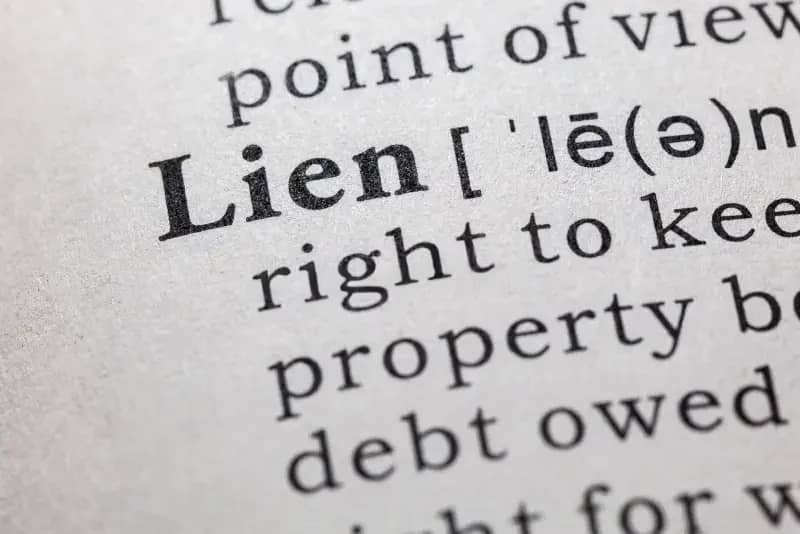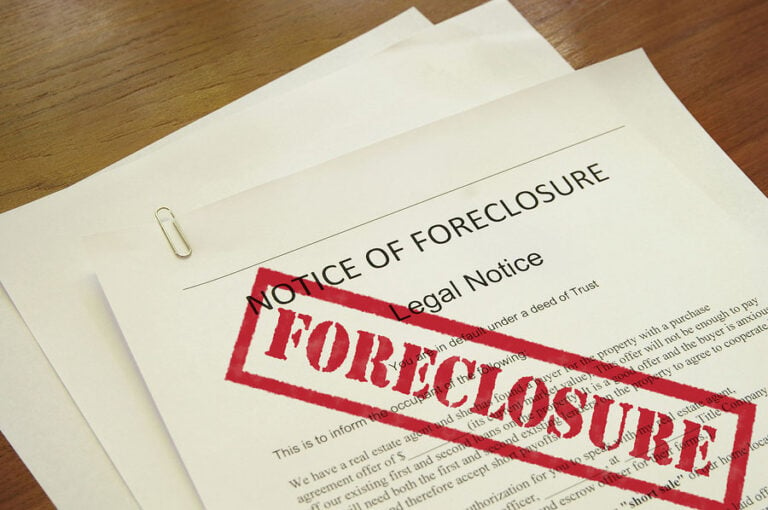What is a Lien on a House & How Does a Lien on a Home Work?
What is a lien on a house? When a creditor puts a lien on a house, they make a legal claim on the property. This acts as a roadblock, or encumbrance, that interferes with the homeowner’s ability to sell the house, refinance the house, or transfer the home’s clear title.
Before a lender will finance a home or a buyer will finalize a sale, a property title search for liens must be conducted. If a lien is found, it will generally need to be resolved, which can slow the sales process considerably.
Table of Contents
What is a lien on a house?
A lien is a legal claim that’s based on a debt and is attached to property by the creditor. What does a lien on a property mean? When there’s a lien on a house, it acts as an encumbrance – or an obstacle – to selling, transferring, or refinancing property.
How do you get a lien on your house?
Why is there a lien on my house? Every lien is based on relevant debt. For example, if you have a mortgage, you have a voluntary lien that you agreed to. There are also involuntary liens, which refer to those that are put in place without your consent.
Common types of encumbrances, or involuntary liens, include:
- Tax liens, which are based on property taxes
- Mechanics liens, which are based on debts related to contractors making home improvements and repairs
- Judgment liens, which are based on court orders
- Homeowners association liens, which are based on HOA fees
There are several types of lien, and it’s important to understand that they can ultimately lead to your home being foreclosed upon or can negatively impact the sale, purchase, or refinancing of the property.
How does a lien on a house work?
When a homeowner fails to pay a house-related debt, the lender can address the issue with a lien. The lien ensures that – in most cases – the home can’t be sold or refinanced until the underlying financial concern is resolved and the lien is officially lifted.
Who can put a lien on a property? Anyone who has a legal claim to debt that is owed to them by the house’s owner can put a lien on the property, This includes contractors, tax agencies, HOAs, and those with judgment liens that are established through the court.
Liens are a matter of public information, which means that any interested party can discover a lien via a search through the county recorder, a third-party lien service, a title company, or a real estate attorney. Before a bank will refinance a home or approve a mortgage loan to buy the home, it will carefully address the business of any attached liens.
How many liens can you have on a house?
There is no specific limit to the number of liens you can have on a house. The number of liens on a house, instead, directly correlates with the number of creditors who lay claim to the property in the form of a lien. If there’s more than one judgment against you, your home can face multiple liens.
Can you buy a house with a lien on your credit?
Liens don’t show up on your credit and, therefore, don’t directly affect it. Liens, however, generally signify credit concerns. Your ability to buy a house that requires financing, such as a mortgage, is directly affected by your credit score. And any credit issues can interfere with the purchase.
Can you sell a house with a lien on it? In certain situations, you can sell a house with a lien on it, but you should expect the sales process to be more challenging. Buyers generally don’t take liens lightly, and attempting to resolve the lien prior to sale is often the best approach.
How to pay a lien on a house
There are several ways to pay a lien on a house. If you’re wondering how to get a lien off your house prior to sale, you should know that the simplest way to remove a lien is by paying off the debt directly. This, however, won’t always be a possibility.
Fortunately, there are other options when it comes to getting a lien off your home for you to consider, including:
- Finding a buyer who is motivated to purchase your home with the lien attached
- Making a partial payment to the creditor that involves a lien removal
- Resolving the matter legally through the court – if the lien is in error or if the proper procedures weren’t followed
- Filing bankruptcy, which – in limited situations – can help
In order to remove a lien, however, you’ll need to know how to find liens on a property. This can be accomplished in all the following ways:
- By conducting a title search through the county recorder, which can usually be done online and in person
- By using a third-party lien service offering fee-based searches , which tends to be a more direct approach than searching through the county
- By hiring a title company
- By engaging the professional services of a real estate attorney
- By waiting out the statute of limitations –or time limit –set by the government – which is 10 years in California
Once you have the lien removed, opportunities in relation to buying, selling, or refinancing the property in question increase considerably.
What does a lien on a house mean? Our key takeaways
A lien on your property represents a legal claim based on debt that a creditor has established against the asset. Once a lender places a lien, it becomes a matter of public record and can affect the refinancing or sale of your property.
Liens can be resolved prior to sale by, for example, paying off the underlying debt. Additional avenues forward include resolving invalid or incorrectly processed liens through the court, waiting until the 10-year statute of limitations expires, offering the creditor a partial payment, declaring bankruptcy (in some circumstances), or finding a buyer who is willing to absorb the lien.
Another option is selling to a well-established real estate investor. At SoCal Home Buyers, we pay cash for properties like yours throughout Southern California, and sometimes, this includes homes with liens on them.
Because we’re investors, we have considerable financial flexibility. Depending upon the circumstances involved, this means we may be able to make you an offer upfront and address the matter of the lien ourselves. In other situations, we can afford you the time you need to resolve the lien prior to sale.
If you want to get a clearer picture of how we may be able to help you regarding your house with a lien on it, please don’t hesitate to reach out. If we’re able to make you an offer on your house , you’ll be glad to know we’ve streamlined the purchase process to just the following simplified steps:
- Contact us at 951-331-3844 or fill out the short form below to request your fair cash offer. Note: If you’re dealing with liens on your property, don’t worry. We have experience handling such situations, and we’ll do our best to find a solution.
- Await our prompt response to discuss your property and the liens in greater detail and schedule a one-time inspection. Note: Dealing with liens requires a comprehensive understanding of the situation, and our team will work closely with you to assess the property’s condition and lien status.
- Our in-house inspector will assess your property and liens to determine a fair cash offer based on the market value and the lien amounts. Note: The presence of liens may impact the final cash offer, but we’ll strive to provide you with the best possible solution to resolve the liens and purchase your property.
- If you’re on board with the offer, we’ll work diligently to address the liens and facilitate the sale process. Note: Resolving liens can involve negotiations and legal procedures, which may extend the timeline. We’ll work with you to find the most suitable closing date.
Throughout the process of selling your house with liens, we’ll handle the complexities and work towards resolving the liens to ensure a smooth transaction. While liens can add intricacies to the selling process, our experienced team is here to guide you through the steps and find a solution that works best for you.
Reach out to us today to discuss your situation further and learn how we can help you sell your California house with liens.
FAQs
Is a lien bad?
A lien isn’t necessarily bad. For example, your mortgage is a lien, and there is nothing bad about that. These voluntary liens, which include car notes and business assets, bolster your credit and are classified as good. Involuntary liens, however, do negatively affect your credit and are generally considered bad.
How does a lien affect your credit score?
While a lien will not appear on your credit report, this does not mean it won’t affect your credit. If the lien is based on you being behind on payments, the lender can report your payment history to the credit bureaus, which can directly affect your credit score.
What is a title lien on a house?
A title lien on your house simply means that the lien in question is attached to your home’s title. When a lender or homebuyer searches the property through the county recorder, third-party lien service, or title professional, the title lien will show up and will likely affect the proposed transaction.
What is a lienholder on a house?
The lienholder is the party who holds a lien against the house. For example, a contractor who attaches a mechanics lien to a home is the lienholder. The bank, however, is the lienholder of your mortgage. The government, on the other hand, is the lienholder of any tax liens.
What happens if you buy a house with a lien on it?
If you’re considering purchasing a home with a lien on it, you should know that you’ll have difficulty obtaining financing through a traditional lender. Generally, liens need to be resolved prior to closing. If you do go through with the purchase, you’ll need to take on the lien.
Every purchase should be carefully considered on a case by case basis. There are circumstances when buying a home with a lien on it is perfectly reasonable. For example, if the property in question is your dream home in your dream location, absorbing an attached lien may be worth it.










